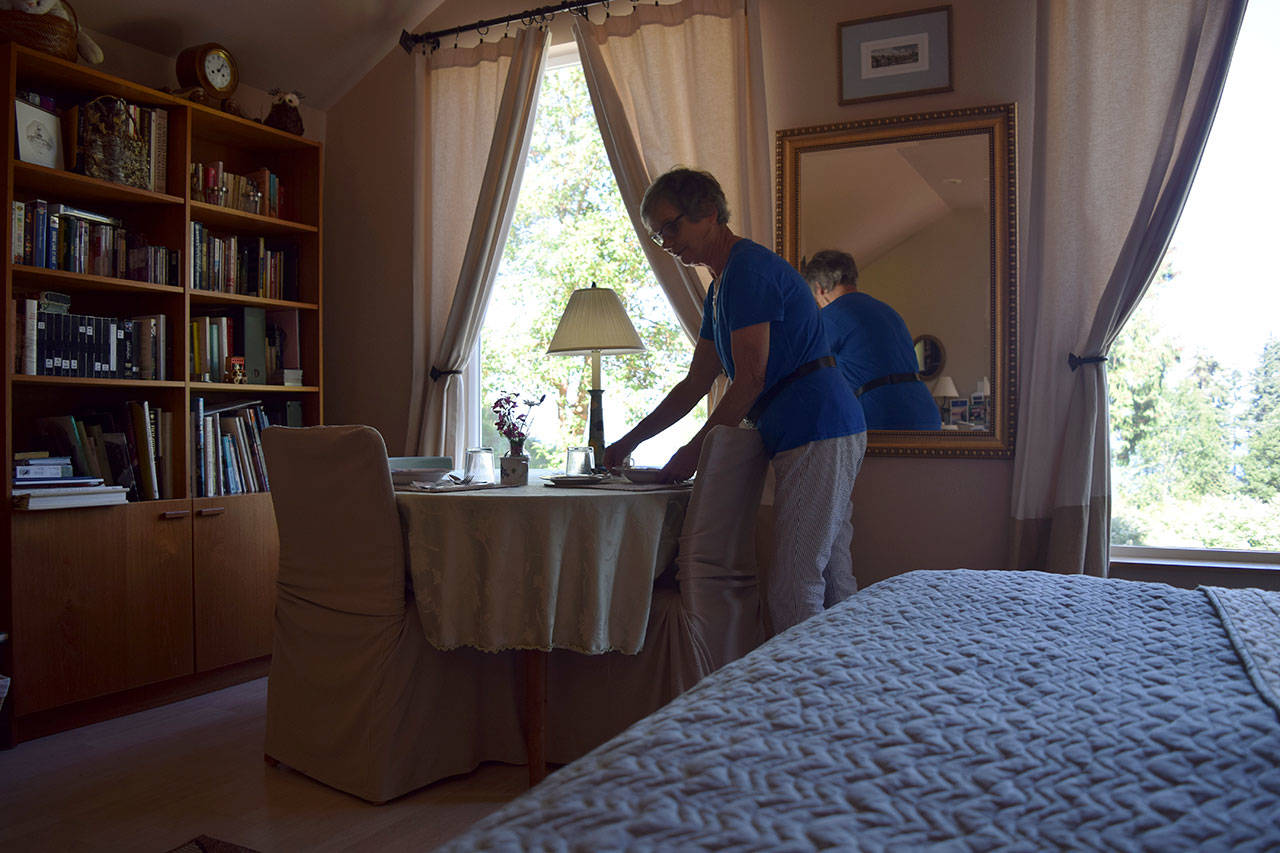Every September, Whidbey Island Center for the Arts officials are faced with the task of finding free lodging for approximately 60 Djangofest performers, typically turning to bed and breakfasts and private residences.
This year, however, WICA is struggling to find lodging for all performers, according to Executive Director Stacie Burgua. They’re not alone; Island Shakespeare Festival is facing the same issue.
Some of hosts from the past have begun posting their spare rooms on vacation rental websites such as Airbnb and VRBO.
“First of all, we don’t have much lodging in the area to start with,” Burgua said. “In the Airbnb and VRBO industry, people are finding that extra bedroom in their house can be revenue generating, and there seems to be less home stay options.”
“That can be a problem, because the ability to house our artists is critical to being able to do this international music festival on the island, that’s the bottom line.”
In the Coupeville area alone, Blue Goose Inn owner and Whidbey Island Bed &Breakfast Association President Dave Broberg said he believes the number of listings on those websites number “in the hundreds.”
While some bed and breakfast association members advertise on VRBO and Airbnb, some voiced concerns about the competition the websites bring, he said.
“I can’t speak for them, but I’ve heard some of the members of the association have concerns about the competition from Airbnb and VRBO,” Broberg said. “They say it has negatively impacted their business.”
Langley resident and Carol Lee’s Attic owner Carol Bingman said she doesn’t rely on the income from her vacation rental for her livelihood, but saw a drop in rentals from 153 in 2015 to 104 in 2016.
“That’s down almost 50,” Bingman said. “That’s a lot for a little place.”
Broberg and others have began posting their rooms on the website, but not all bed and breakfast owners are transitioning.
Country Cottage of Langley owner Tom Felvy said he thinks making a name on the websites is more work than he was willing to put in, as the sites operate on a customer rating basis.
Many rentals with low or fewer ratings aren’t reserved as frequently.
The hospitality industry as a whole has felt the effect from Airbnb and VRBO, Felvy agrees, but added he isn’t aware of any rentals on the island closing as a result of the competition.
Many in the industry are irritated by the fact that some rentals on the websites aren’t subject to as much regulation as traditional bed and breakfasts, meaning they don’t pay all the licensing fees required of bed and breakfast owners.
It makes establishing a traditional bed and breakfast more difficult given added competition against those who don’t have to pay as much.
Yet, it’s more than that.
“The impact on us is doubled because of the housing issue,” Felvy said. “We’re having more of a difficult time finding employees. If we want to hire people off-island, there just isn’t anywhere available for them to live, so it effects our ability to find help.”
Felvy and Burgua said that they believe housing on Central and South Whidbey is being taken by those who are choosing to make a quick buck through vacation rentals rather than leasing to renters.
It’s minimizing the rental market, which is already tight on the island, and has decreased the amount of people offering home stays to artists who perform at festivals like Djangofest and Island Shakespeare Festival.
Some like Broberg see putting their listings on the online vacation rental websites as a marketing opportunity and have begun using the medium. Others, like Bingman, are still deciding.
“I’ve thought about joining Airbnb myself,” Bingman said.
“It’s just one more thing to do and monitor, but people seem to go through those sites these days when they travel.”



